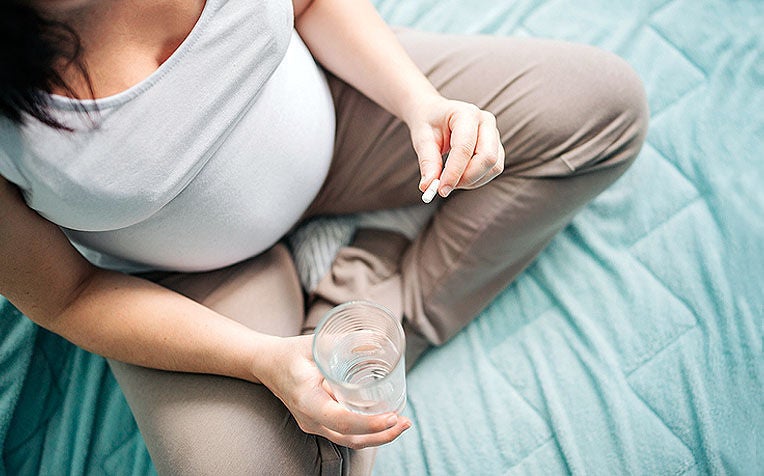HealthXchange will NEVER ask you to transfer money over a call. If in doubt, call the 24/7 ScamShield helpline at 1799, or visit the ScamShield website at www.scamshield.gov.sg.
Supplements During Pregnancy: What You Need and Top Food Sources

Having sufficient calcium is important for expecting mothers not just for her developing baby but it also helps to lower the mother's risk of developing osteoporosis later in life.
Micronutrients are vitamins and minerals that are important for you and your baby’s growth and development.
Top 4 supplements needed during pregnancy
There are a few key micronutrients that you should try to optimise from your diet:

1. Folic acid (First Trimester)
a. Make sure that you are taking enough green leafy vegetables such as spinach as well as citrus fruits to ensure that you have enough folate in your diet. Folate (or folic acid) is important during the initial development of your baby’s nervous system, which usually happens during the first few weeks of his/her development.
2. Calcium (Second and third trimesters)
a. Calcium helps to build, maintain and strengthen bones. If a pregnant mother does not have enough calcium within her, the developing baby may start to pull calcium from the mother’s bones. This can increase her risk of osteoporosis in her later life.
Women should have at least 1000mg of calcium intake each day. Have 2 glasses of low fat high calcium milk (~500 mg/250ml) to meet your daily calcium requirement. Vitamin D helps the body to better absorb the ingested calcium. Low sun exposure and sedentary lifestyle increase the risk of vitamin D deficiency.
3. Docosahexaenoic acid (DHA)
a. DHA, one of the omega-3 fatty acids, is important for your baby’s brain and eye development during the pregnancy. It is mainly found in cold water deep-sea fish.
b. Owing to the mercury content concern, avoid shark, swordfish, king mackerel (known as “batang fish” locally) and tilefish (also called white snapper); and limit canned white tuna made from albacore tuna to one serving a week (1 serving = 1 palm size).
c. You can have 2 servings a week of salmon, sardines, herring, halibut or canned light tuna (e.g. skipjack, bigeye and yellowfin).
4. Iron
a. Pregnant women have increased needs for iron due to the increase in blood volume and additional needs of the unborn baby.
b. There are 2 forms of iron in foods — heme and non-heme. Heme iron is better absorbed by the body than non-heme iron.
Sources of heme iron include red meat, chicken and fish.
Sources of non-heme iron include grains, green leafy vegetables, legumes and nuts.
c. To boost iron absorption, consume vitamin C-rich foods (i.e. fresh fruits and vegetables) at the same meal or take it together with iron tablets. Avoid from taking meals/iron tablets with tea, coffee and milk which will reduce iron absorption.
d. Dark stools are normal when taking iron tablets.
Ref: J22
Contributed by
Related Articles
Conditions & Treatments
Public Events
Get the Health Buddy App
© 2025 SingHealth Group. All Rights Reserved.


















 Get it on Google Play
Get it on Google Play